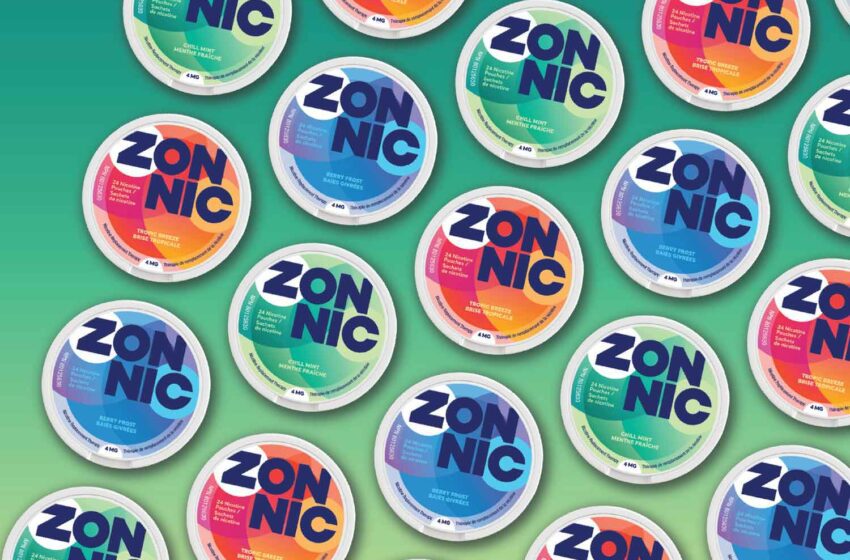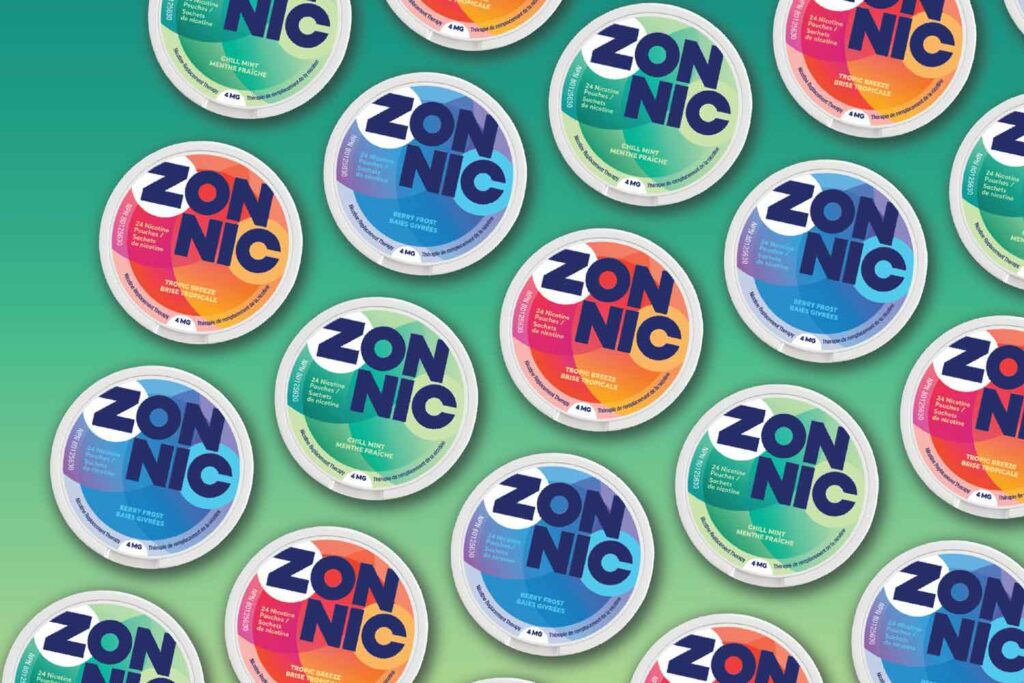Anti-smoking advocates in Canada are calling for the federal government to restrict sales of Zonnic, a product of Imperial Tobacco Canada (ITCAN), stating that it is aimed at youth. Health Canada recently approved the product, which is a nicotine-replacement therapy (NRT) oral pouch containing up to 4 mg of nicotine.
Despite the criticism, Imperial Tobacco Canada has defended its product. ITCAN “believes that Zonnic, a nicotine-replacement therapy (NRT) product authorized for sale by Health Canada, will help adult Canadian smokers quit,” the company wrote in a press release. “In addition to the youth access prevention measures ITCAN has already taken, ITCAN would support regulations that limit the sale [of the] NRT category to adults 18 years old and over.”
“I want to be absolutely clear: Zonnic is not a tobacco product,” said Eric Gagno, vice president of legal and external affairs at ITCAN. “It is licensed, regulated and advertised in the same way as any other smoking cessation product on the market. There should be no reason why ITCAN is singled out for adding another innovative choice to the market to help adult smokers quit.”
Zonnic is marketed as an NRT for adults, but it is available for sale at convenience stores and gas stations with no legal restrictions on who can purchase it, according to public health groups. The groups also stated that ITCAN’s social media posts feature young people and highlight Zonnic’s flavors, including Berry Frost and Tropic Breeze.
“It really is incomprehensible that this could have happened, but it has,” Rob Cunningham, senior policy analyst with the Canadian Cancer Society, told The Globe and Mail. “And now it has to be fixed.”
ITCAN’s press release states that “Zonnic is not promoted any differently than any other competing smoking cessation product in Canada. ITCAN’s marketing guidelines require that all material be targeted at adults. Everyone appearing in Zonnic advertising is 25 years old and older. In addition, the company has gone above and beyond the regulatory requirements in the terms of its market authorization by instructing retailers to require proof of age to purchase Zonnic at convenience stores. Zonnic is also sold behind the counter, which means the retailer must hand the product to the consumer. Furthermore, Zonnic will be available in pharmacies before the end of the month.”
The public health groups, including the Canadian Cancer Society, the Canadian Lung Association, Physicians for a Smoke-Free Canada and the Heart and Stroke Foundation, are calling on the Canadian government to make nicotine pouches prescription only or suspend the sale until changes can be made to prevent sales to minors. The groups are also calling for a moratorium on approval for any other nicotine pouches unless they are prescription only.
“As for all of our products,” Gagnon said, “our position has been consistent and strong on this point. Nicotine products are for adult consumers only. We believe that if we truly want to reduce the health risks of tobacco products, we need to introduce products that will be appealing to adult smokers and have them available where people traditionally buy their cigarettes. Health groups should be on our side with this rather than putting up roadblocks.”
“We are aligned to Health Canada’s goal of reducing smoking rates to below 5 percent by 2035,” Gagnon said. “But to get there, we need to change the conversation to bring about impactful outcomes. Governments, health groups and industry must work together in a meaningful manner to bring effective solutions to the market. Our door is always open to have those discussions.”






